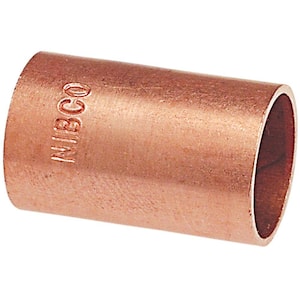How to Choose the Right Copper Products for Your DIY Projects and Home Renovations
How to Choose the Right Copper Products for Your DIY Projects and Home Renovations
Blog Article
Exploring the Diverse Applications of Copper Products in Modern Industries
Copper products have actually developed themselves as indispensable parts throughout a myriad of contemporary sectors, primarily due to their impressive conductivity, pliability, and resistance to rust. From boosting the efficiency of electric systems to playing a crucial duty in sustainable power modern technologies, the convenience of copper appears. In addition, its recyclability positions it as a sustainable selection in manufacturing and electronic devices. As industries significantly focus on technology and sustainability, the varied applications of copper warrant a closer evaluation, especially concerning their prospective effect on future environmental methods and technical developments.
Electric Applications of Copper
Copper is an important product in the electric market, accounting for roughly 60% of the overall need for non-ferrous steels internationally - Copper Products. Its exceptional electrical conductivity, which is almost twice that of light weight aluminum, makes it the recommended choice for a wide variety of electrical applications. From circuitry systems in residential and commercial structures to high-voltage power transmission lines, copper makes sure efficiency and reliability in electrical energy distribution
Along with wiring, copper is essential to the manufacturing of electric components such as motors, transformers, and generators. These parts leverage copper's thermal conductivity and malleability, vital for heat dissipation and efficient performance. Copper's resistance to rust boosts the life-span and toughness of electrical systems, making it an affordable solution in the long term.
The development of sustainable energy sources, such as solar and wind power, has better boosted the demand for copper in electric applications. As sectors change towards lasting energy services, copper's role becomes even a lot more crucial. On the whole, the adaptability and efficiency features of copper solidify its condition as a cornerstone product within the electric market, driving innovation and effectiveness throughout different applications.
Pipes and Piping Solutions
In modern pipes systems, the choice of products significantly impacts both functionality and long life. Copper has arised as a recommended option because of its one-of-a-kind homes, consisting of deterioration resistance and antimicrobial qualities. These characteristics guarantee that copper piping remains long lasting and secure for carrying potable water, a critical consideration in domestic and industrial applications.
Among the crucial benefits of copper in plumbing is its capability to stand up to heats and stress, making it ideal for a range of applications, from warm water systems to home heating and cooling down networks. In addition, copper's adaptability permits much easier installment in intricate piping formats, lowering the threat of leakages and failings.
An additional noteworthy advantage is copper's long life expectancy, typically surpassing 50 years with proper maintenance. This long life not just lessens replacement costs yet also adds to lasting methods by minimizing waste. In addition, copper's recyclability aligns with modern ecological requirements, promoting a circular economy within the plumbing industry.
Copper in Renewable Resource
The versatility of copper prolongs past plumbing applications, playing a vital duty in the renewable energy sector. In solar panels, copper is utilized in solar cells and wiring, helping with effective energy conversion and transmission.

Furthermore, as the worldwide demand for electrical lorries (EVs) boosts, copper's function in battery systems and billing framework ends up being a lot more substantial. The product's capability to perform power successfully is indispensable to the efficiency of EV batteries, boosting array and billing rate.
Copper's Function in Electronics
Electronics manufacturing depends heavily on copper's phenomenal properties, specifically its high electric conductivity and thermal performance. These features make copper an excellent choice for a vast array of electronic components, consisting of connectors, motherboard, and electrical wiring. The metal's ability to successfully send electrical signals ensures marginal energy loss, which is essential in high-performance electronic tools.
In addition, copper's thermal conductivity plays a considerable role in warmth dissipation, securing sensitive components from overheating. This is specifically crucial in modern electronic devices, where compact layouts bring about boosted heat generation. Copper is likewise favored for its malleability and ductility, allowing it to be her response easily formed right into intricate layouts that fulfill the demands of advanced digital applications.
With the rise of customer electronics, telecommunications, and electric vehicles, the demand for copper in the electronic devices industry remains to expand. As developments in innovation advance, copper remains important to attaining higher performance and reliability in electronic items. Its recyclability better enhances its appeal, as makers seek sustainable services without endangering top quality. Hence, copper continues to be a foundation product their explanation in the ever-expanding area of electronics.
Ingenious Uses in Production

One notable application remains in additive manufacturing, where copper-based products are employed in 3D printing procedures. This permits the production of complicated geometries and lightweight elements, specifically in the aerospace and automobile sectors. Furthermore, copper's thermal conductivity makes it a perfect selection for heat exchangers, boosting efficiency in commercial cooling systems.
Additionally, the rise of wise production has seen the unification of copper in IoT devices, where its conductive abilities sustain sophisticated picking up technologies. In the realm of renewable resource, copper is pivotal in the production of photovoltaic panels and wind generators, helping with a lot more efficient energy conversion and circulation.
As sectors strive for sustainability and advancement, copper's convenience and performance continue to place it as a critical material, driving advancements in manufacturing and adding to the advancement of smarter, much more this efficient products.
Final Thought
The essential function of copper in sustainable power and its crucial feature in electronics underscore its significance in advancing lasting techniques. Collectively, these applications highlight copper's essential payment to technological progress and commercial performance in contemporary society.
From enhancing the efficiency of electric systems to playing a critical function in renewable power technologies, the convenience of copper is obvious. As markets increasingly focus on development and sustainability, the varied applications of copper require a closer assessment, particularly concerning their prospective impact on future technological innovations and environmental methods.
The growth of eco-friendly energy resources, such as solar and wind power, has actually further raised the demand for copper in electric applications. In general, the convenience and performance features of copper strengthen its status as a keystone material within the electrical field, driving development and performance across various applications.
The adaptability of copper expands beyond pipes applications, playing a vital function in the eco-friendly power field.
Report this page